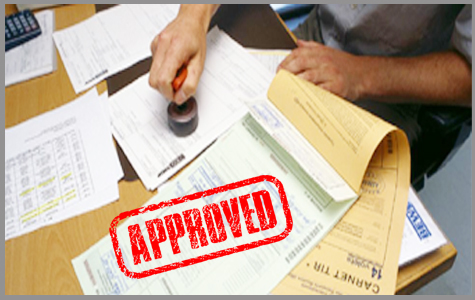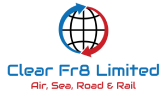How to Import E-Cigarettes/Electronic Cigarettes
In the rapidly evolving world of e-cigarettes/electronic cigarettes, a popular alternative to traditional tobacco smoking, there's a significant increase in global demand. This surge presents a lucrative opportunity for businesses and individuals looking to import these products into the UK. However, the importation process involves a complex web of legal, regulatory, and customs clearance procedures that can be daunting. This comprehensive guide is crafted to provide a clear, step-by-step understanding of how to navigate these complexities, ensuring a successful and legal import of e-cigarettes and electronic cigarettes into the UK.
What are E-cigarettes/electronic cigarettes?
E-cigarettes and electronic cigarettes, commonly known as vapes, are electronic devices designed to offer a smoking-like experience without the harmful effects of tobacco smoke. These devices come in various forms, ranging from simple, sleek, pen-like devices to more sophisticated systems that can be modified for a personalized vaping experience. The increasing appeal of e-cigarettes, particularly among the younger population, has spurred a rapidly expanding market. For importers, this means not only a growing customer base but also a need to understand the diverse range of products and their specific importation requirements.
Understanding UK Import Laws and Regulations
Tobacco and Related Products Regulations 2016 (TRPR)
The TRPR acts as the cornerstone of e-cigarettes/electronic cigarette regulation in the UK. It mandates specific standards for the safety, labeling, and packaging of e-cigarettes and refill containers. Importers must ensure that their products comply with these regulations to avoid legal pitfalls. This includes adhering to standards for product quality, safety mechanisms, and clear, accurate labeling that informs users of the contents and potential risks associated with their use.
Nicotine Content Restrictions
One of the critical aspects of TRPR is the regulation of nicotine content in e-cigarettes/electronic cigarettes. The law caps the nicotine concentration in e-cigarettes and refill containers at 20 mg/mL. This limit is set to balance the needs of smokers looking to switch to e-cigarettes while minimizing potential health risks associated with high nicotine concentrations. Importers must be vigilant in ensuring that their products comply with these limitations to avoid legal issues and potential health hazards to consumers.
MHRA and TPD Compliance
Navigating the requirements set by the Medicines and Healthcare products Regulatory Agency (MHRA) and the Tobacco Products Directive (TPD) is a non-negotiable aspect of importing e-cigarettes into the UK. These bodies govern the market to ensure public health and safety. Compliance with their guidelines is essential for any importer aiming to legally sell e-cigarettes within the UK. This includes registering products with the MHRA, adhering to TPD standards, and ensuring that all products have undergone rigorous testing and quality assurance processes.
Customs Clearance and Duties
Documentation and Declaration
The customs clearance process begins with the correct classification and declaration of e-cigarettes/electronic cigarettes under specific tariff codes. It's essential for importers to accurately declare the nature, value, and origin of their products. Incorrect or incomplete declarations can lead to delays, fines, and confiscation of goods. This step requires detailed knowledge of customs regulations and meticulous record-keeping.
Taxes and Duties
Understanding and calculating the applicable taxes and duties, including VAT (currently at 20%), is a critical part of the import process. These financial obligations can significantly affect the overall cost of importing and, subsequently, the pricing of the products in the UK market. Importers must budget for these costs and stay updated on any changes in tax rates or customs duties that could impact their operations.
Packaging, Labeling, and Legal Considerations
The UK imposes stringent packaging and labeling requirements on e-cigarettes to ensure consumer safety and informed usage. These include mandatory health warnings, ingredient listings, and clear instructions for use. Non-compliance with these regulations can result in penalties, such as fines or confiscation of goods. Furthermore, importers must be vigilant in ensuring that their products do not end up in the hands of minors (under 18), as this can lead to severe legal repercussions.
Special Considerations for Nicotine-Containing Products
Importers dealing with nicotine-containing e-cigarettes/electronic cigarettes face additional regulatory hurdles compared to those importing non-nicotine products. These regulations are in place to manage the potential health risks associated with nicotine. It's crucial for importers to understand these differences and ensure that their products, packaging, and marketing strategies comply with these more stringent standards.
Dealing with Restrictions
The UK may place restrictions or outright prohibitions on certain types of e-cigarettes or their components. Importers must stay informed about these restrictions to ensure that their product portfolios do not include prohibited items. Understanding how to navigate these restrictions is vital to avoid legal issues, which can range from fines to criminal charges.
The Role of Customs Clearance Agents
For those new to the import process or those looking to streamline their operations, engaging a customs broker can be a wise decision. These professionals specialize in navigating the complexities of customs clearance, documentation, and regulatory compliance. Their expertise can save time, reduce the risk of errors, and provide peace of mind, particularly in handling intricate or large-scale import operations.
E-Commerce and Online Sales
In today’s digital age, many importers are looking to sell e-cigarettes through online platforms. Understanding the UK’s regulations regarding e-commerce is critical. This includes adhering to rules on online advertising, ensuring robust age verification processes to prevent sales to minors, and complying with cross-border sales laws. Importers must also be aware of the specific e-commerce tax regulations and how they apply to online sales of e-cigarettes.
Environmental Responsibilities
The environmental impact of e-cigarettes is an increasing concern. In the UK, there are specific regulations for the disposal and recycling of these products. Importers should not only comply with these regulations but also consider adopting environmentally responsible practices in their business models. This could include initiatives for recycling used devices, using eco-friendly packaging materials, and educating consumers on responsible disposal methods.
Case Studies: Successful Imports
Analysing case studies of successful e-cigarette imports can offer practical insights and strategies for overcoming challenges in the import process. These case studies often highlight best practices in compliance, customs clearance, and market entry strategies. Learning from the experiences of established importers can help new entrants avoid common pitfalls and streamline their import operations.
Importing e-cigarettes/electronic cigarettes into the UK is a multifaceted process that requires a thorough understanding of a range of laws, customs procedures, and regulatory compliance measures. By meticulously adhering to these guidelines and staying informed about the evolving regulatory landscape, importers can navigate the market successfully and capitalize on the growing demand for e-cigarettes. As this market continues to evolve, staying agile and informed will be key to long-term success in the e-cigarette import business.
Note: This guide is for informational purposes only and does not constitute legal advice. Consult with legal and trade professionals for specific guidance on importing e-cigarettes into the UK.
DOCUMENT REQUIREMENTS
- Certificate of Origin
- Bill of Lading
- Packing List
- Commercial Invoice
- Customs Clearance

